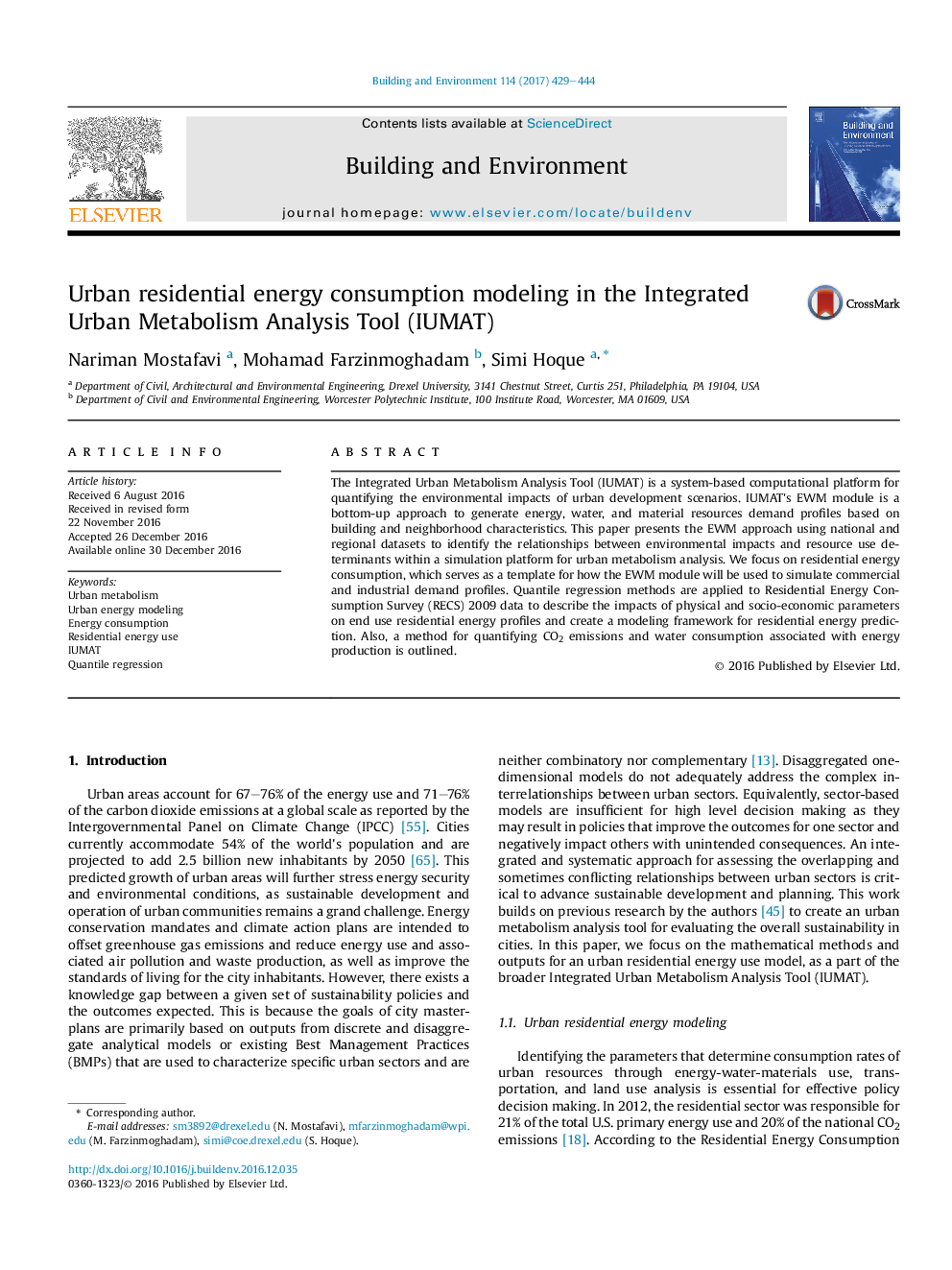| Article ID | Journal | Published Year | Pages | File Type |
|---|---|---|---|---|
| 4917435 | Building and Environment | 2017 | 16 Pages |
Abstract
The Integrated Urban Metabolism Analysis Tool (IUMAT) is a system-based computational platform for quantifying the environmental impacts of urban development scenarios. IUMAT's EWM module is a bottom-up approach to generate energy, water, and material resources demand profiles based on building and neighborhood characteristics. This paper presents the EWM approach using national and regional datasets to identify the relationships between environmental impacts and resource use determinants within a simulation platform for urban metabolism analysis. We focus on residential energy consumption, which serves as a template for how the EWM module will be used to simulate commercial and industrial demand profiles. Quantile regression methods are applied to Residential Energy Consumption Survey (RECS) 2009 data to describe the impacts of physical and socio-economic parameters on end use residential energy profiles and create a modeling framework for residential energy prediction. Also, a method for quantifying CO2 emissions and water consumption associated with energy production is outlined.
Keywords
Related Topics
Physical Sciences and Engineering
Energy
Renewable Energy, Sustainability and the Environment
Authors
Nariman Mostafavi, Mohamad Farzinmoghadam, Simi Hoque,
